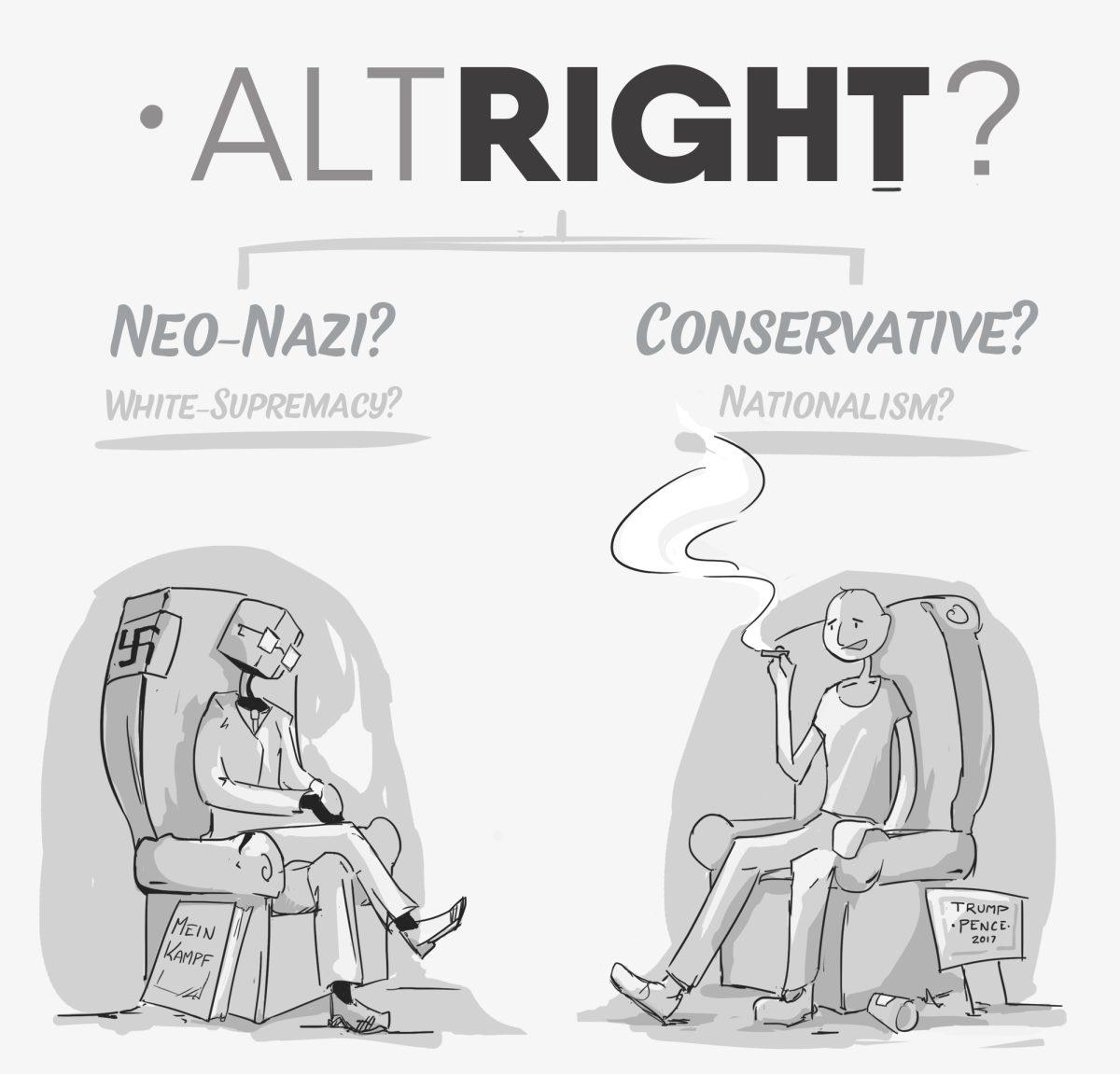The term “alt-right” came to the forefront during the 2016 election as Hillary Clinton and various media outlets connected the movement to the rise of Donald Trump. But what exactly is the “alt-right?”
The phrase encompasses neo-Nazis, some users of the message board 4chan, anti-establishment conservatives and white nationalists. The problem with the term “alt-right” is that it’s nebulous.
Instead of calling people members of the “alt-right” movement, we should accurately label and characterize them based off their actions.
“Alt-right” isn’t a descriptor of an action so much as a movement, and, because of that, there are no specific actions that can be described as “alt-right.”
Self-avowed white nationalist Richard Spencer coined the term “alt-right” in 2010 to describe himself, but it is more accurate to call Richard Spencer a racist and perhaps a neo-Nazi. By calling people like him “alt-right,” we are making his opinion more palatable to the general public.
Breitbart News Network editor Milo Yiannopolos has been called a leader of the “alt-right” by NPR, but it would be more accurate to call him a misogynist who hates political correctness and has engaged repeatedly in controversial and hateful speech. By calling people like Yiannopolos or ex-chairman of Breitbart and now Trump’s Senior Counselor Steve Bannon “alt-right” we start to conflate sexists and anti-immigration advocates with white supremacists.
In short, the term “alt-right” manages to sugarcoat white nationalists while also perhaps misguidedly calling other individuals who identify with only some parts of the movement racists.
The use of the term plays to individuals who have unacceptable views in modern society like racism, anti-egalitarianism, homophobia and xenophobia. Individuals with these views should be called what they are instead lumped of being into an ill-defined category.
The New York Times and The Associated Press recently put out a memo and style guideline respectively about the issue of using the term “alt-right” in publication. The guidelines make it clear that the term should only be used in coordination with a definition and that it should be made clear that “alt-right” is an “offshoot of conservatism mixing racism, white nationalism and populism,” according to The Associated Press.
These are steps in the right direction but I fear that ascribing the term “alt-right” to individuals can be seen pejoratively instead of as a statement about the person’s actions or values.
The way we use language regarding the “alt-right” affects the disposition of conservative-leaning individuals who might not identify with the “alt-right,” but feel as if their ideology is being attacked when the phrase is used to describe far-right conservatives.
Accurately using language to describe people based off their actions leads to more trust and solidarity across partisan lines against racists and sexists.
Categories:
‘Alt-right’ movement too ill-defined for use
January 9, 2017
The Associated Press defines the “alt-right” movement as an “offshoot of conservatism mixing racism, white nationalism and populism” or as “a white nationalist movement.” News outlets such as The New York Times have offered their own definitions of the ambiguous term. Illustration by Kevin Vanhorn | Mercury Staff.
Story continues below advertisement
0
Donate to The UTD Mercury
Your donation will support the student journalists of University of Texas at Dallas. Your contribution will allow us to purchase equipment and cover our annual website hosting costs.
More to Discover






